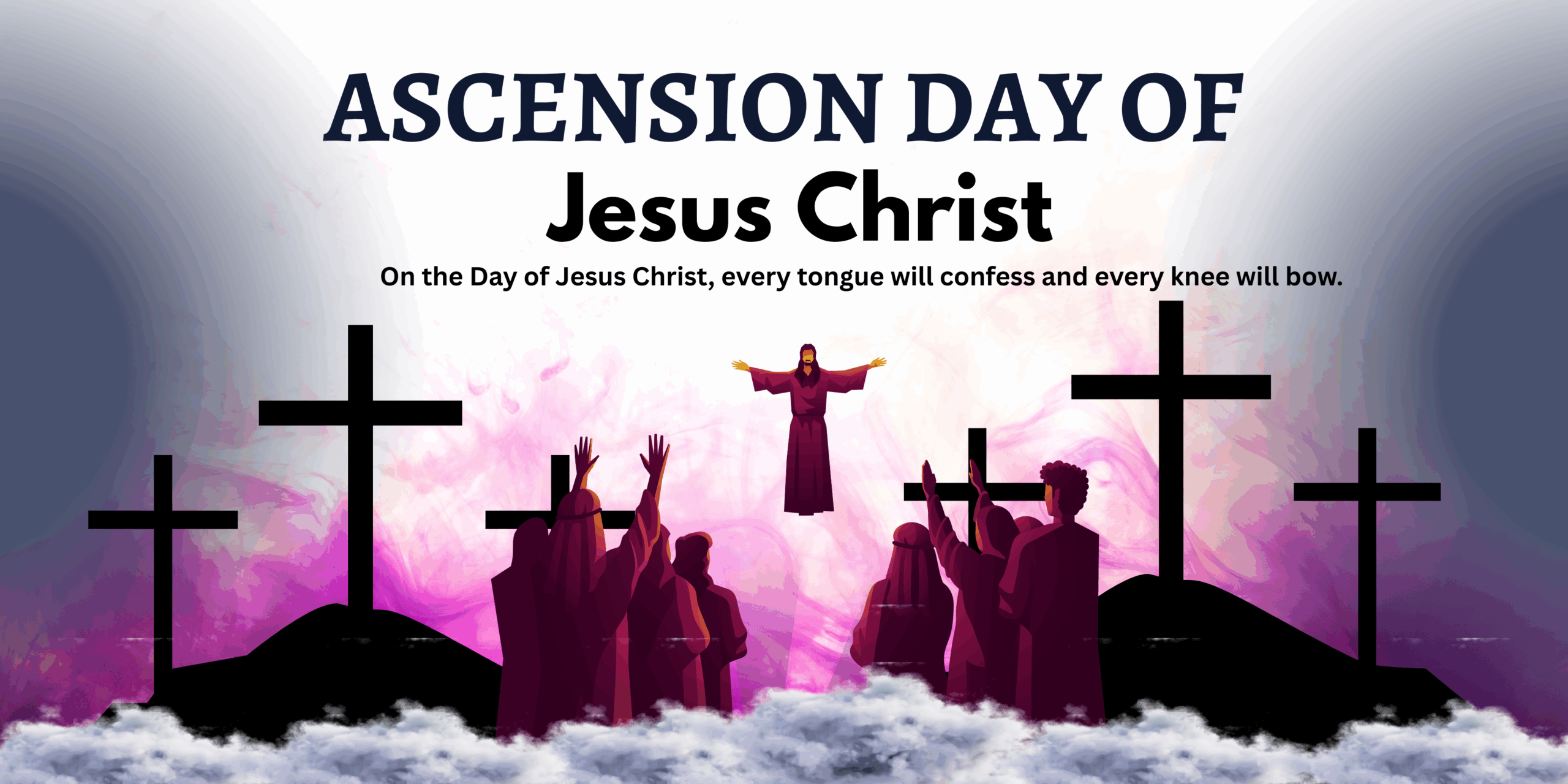Ascension Day Thursday 29 May 2025
Ascension Day Thursday 29 May 2025, Ascension Day 2025: Meaning, Date, Significance & Christian Observance. Ascension Day, also known as the Feast of the Ascension or Ascension Thursday, is one of the most significant events in the Christian calendar. Celebrated 40 days after Easter, it commemorates the moment when Jesus Christ ascended into heaven in the presence of his disciples.
Observed by millions of Christians worldwide, Ascension Day 2025 will fall on Thursday, May 29, marking a moment of spiritual reflection, celebration, and the anticipation of Pentecost. From church services to national holidays, this event continues to hold powerful theological and cultural importance.
Ascension Day 2025 will be observed on May 29. Learn the meaning of the Feast of the Ascension, its biblical origins, Christian significance, observances, and its connection with Pentecost.
What is Ascension Day?
Ascension Day, also referred to as the Feast of the Ascension or Ascension Thursday, is a Christian holy day that commemorates the bodily ascension of Jesus Christ into heaven. This event, according to Christian belief, occurred 40 days after the resurrection, marking the end of Jesus’ earthly ministry and his return to God the Father.
The Ascension of Jesus into Heaven is a foundational event in Christian theology. It is seen not only as a miraculous departure but also as a promise of Jesus’ second coming. Celebrated widely across Christian denominations, Ascension Day carries both spiritual and liturgical significance.
When is Ascension Day in 2025?
In 2025, Ascension Day will fall on Thursday, May 29. It is celebrated on the 40th day of Easter, which always lands on a Thursday. This makes it one of the earliest Christian feast days, with roots tracing back to the 4th century.
Some churches, especially in regions where it is not a public holiday, may move the celebration to the following Sunday to ensure greater participation.
Jesus ascension into heaven
Jesus Ascension into Heaven is a sacred event in Christianity that marks the moment Jesus Christ rose to Heaven 40 days after His resurrection. Celebrated as Ascension Day, it symbolizes His divine authority and the completion of His earthly mission. This event is recorded in the New Testament and holds deep meaning for Christians worldwide, signifying hope, eternal life, and the promise of His return. Ascension Day is observed with church services, prayers, and reflection, often falling on a Thursday, 40 days after Easter Sunday.
Biblical Origin of Ascension Day
The Ascension of Jesus is recorded in several parts of the Bible:
- Luke 24:50-53: Jesus blesses his disciples and is carried up to heaven.
- Acts 1:9-11: Jesus is taken up before their eyes and a cloud hides him.
“He was taken up before their very eyes, and a cloud hid him from their sight.” – Acts 1:9
This divine act marked the end of Jesus’ earthly ministry and the beginning of the apostles’ mission. Christians believe that Jesus’ ascension paved the way for the coming of the Holy Spirit at Pentecost.
Why is Ascension Day Important?
- Spiritual Transition: It symbolizes Jesus’ transition from the physical world to the divine realm.
- Fulfillment of Prophecy: Jesus foretold his departure and ascension, and this event confirmed those prophecies.
- Foundation of the Church’s Mission: After the Ascension, the disciples were tasked with spreading the Gospel.
For Christians, Ascension Day reaffirms faith in the divinity of Christ and the promise of eternal life.
Is Ascension Day a Holy Day of Obligation?
Yes, in the Roman Catholic Church, Ascension Day is a Holy Day of Obligation. This means Catholics are expected to attend Mass. However, in some countries, this obligation is transferred to the following Sunday or not observed at all.
Orthodox, Anglican, and some Protestant churches also mark the day with special services, hymns, and prayers.
How is Ascension Day Celebrated?
The manner of celebration varies across denominations and cultures:
- Church Services: Readings from Acts and Luke, sermons on the Ascension.
- Processions and Candlelight Vigils: Symbolizing the light of Christ.
- Art and Icons: Many churches display Ascension-themed artwork.
- Bells and Music: Joyful hymns reflect the glorification of Jesus.
In some traditions, people climb hills or mountains to symbolize Christ’s journey to heaven.
Is Ascension Day a Public Holiday?
Ascension Day is a public holiday in many Christian-majority countries, such as:
- Germany
- France
- Switzerland
- Belgium
- Norway
- Indonesia
- Finland
In these countries, businesses and schools often close for the day, and communities hold special events or Mass services.
Ascension and Pentecost: What’s the Connection?
Ascension Day begins the 10-day period leading to Pentecost, the day when the Holy Spirit descended upon the apostles. This period is often used by Christians for prayer and reflection.
- Ascension: Marks Jesus’ return to heaven.
- Pentecost: Marks the birth of the Church through the arrival of the Holy Spirit.
These two events are tightly linked in Christian theology.
Ascension Day Around the World
Different cultures bring their own traditions:
- Italy: Known as “La Festa dell’Ascensione,” with open-air Masses.
- Ethiopia: Colorful processions and church gatherings.
- Indonesia: Celebrated with national prayers and Christian fellowship.
Despite cultural differences, the message remains the same: glorifying Christ’s ascension.
Ascension Day Frequently Asked Questions (FAQs)
Q: What is Ascension Day?
A Christian holy day that commemorates Jesus Christ’s ascension into heaven, 40 days after his resurrection.
Q: When is Ascension Day 2025?
It will be observed on Thursday, May 29, 2025.
Q: Is Ascension Day a public holiday?
Yes, in countries like Germany, France, and Switzerland.
Q: Why is Ascension Day celebrated?
To honor Jesus’ return to heaven and reaffirm the promise of his second coming.
Q: What’s the difference between Ascension Day and Pentecost?
Ascension Day marks Jesus’ departure from Earth; Pentecost celebrates the arrival of the Holy Spirit.
Q: Is it a Holy Day of Obligation?
Yes, in many Catholic countries, although observance rules may vary.
